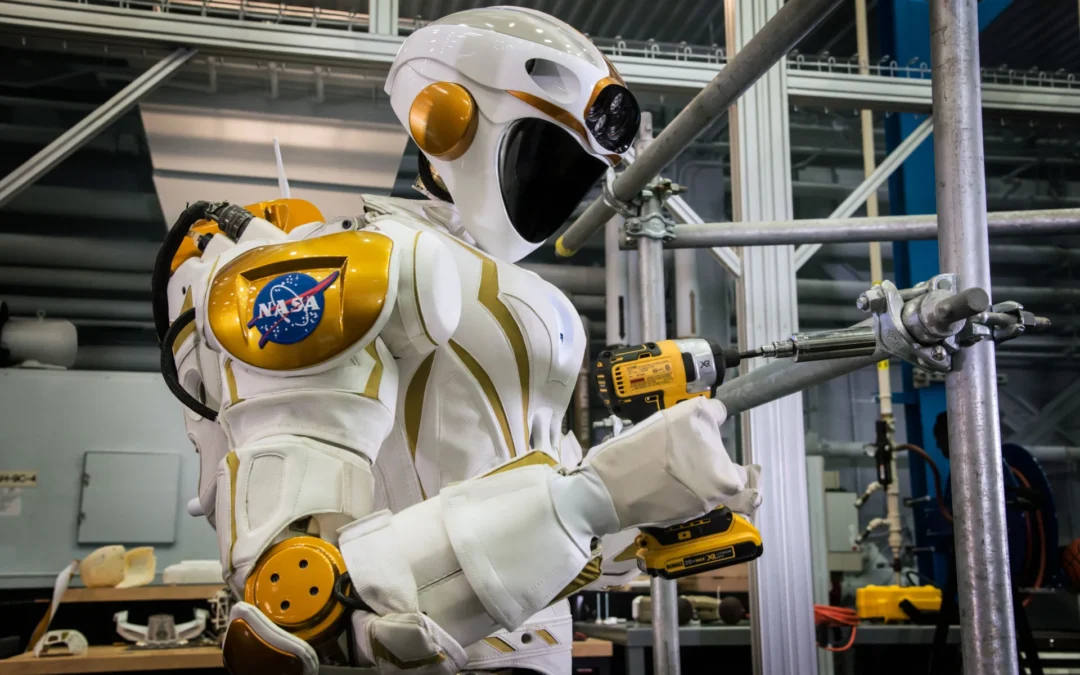Above: The AI model will integrate with NASA’s existing robots including Valkyrie, an advanced humanoid robot designed to support space missions. Credit: NASA
PISCES has partnered with Maui-based aerospace company Black Sand Solutions to create an AI-powered robotic assistant for future NASA missions. The six-month project, funded by a NASA SBIR Phase 1 grant, aims to make space missions safer, more efficient, and less resource-intensive.
The system—called ATHENA (Autonomous Technology for Habitat Environmental Navigation and Assistance)—will work with NASA robots like Astrobee, Robonaut 2, and Valkyrie. ATHENA will help these robots navigate and work inside spacecraft, even in cluttered, changing environments. It will use deep-learning AI to perform tasks such as using tools, moving cargo, making repairs, operating control panels, and detecting hazards like air leaks or structural damage.

PISCES has conducted simulated robotic missions with its Helelani planetary rover at the NASA-funded HI-SEAS habitat on Mauna Loa.
As the project lead, Black Sand Solutions will spearhead ATHENA’s AI and human-robot interaction design. PISCES will provide a testing facility where the AI’s navigation and mobility systems will be put through their paces in a simulated spacecraft environment. PISCES’ experience in robotics testing for lunar and Martian missions, including NASA analog projects like HI-SEAS, will be key to developing and validating ATHENA’s capabilities.
ATHENA will be especially useful for long-duration missions, adapting to changing tasks and conditions with minimal human oversight. By improving safety, boosting productivity, and reducing costs, ATHENA supports NASA’s goal of advancing robotic autonomy for deep-space operations.
Phase 1 will develop and validate the AI model. If successful, Phase 2 will focus on testing ATHENA on real robotic hardware.
